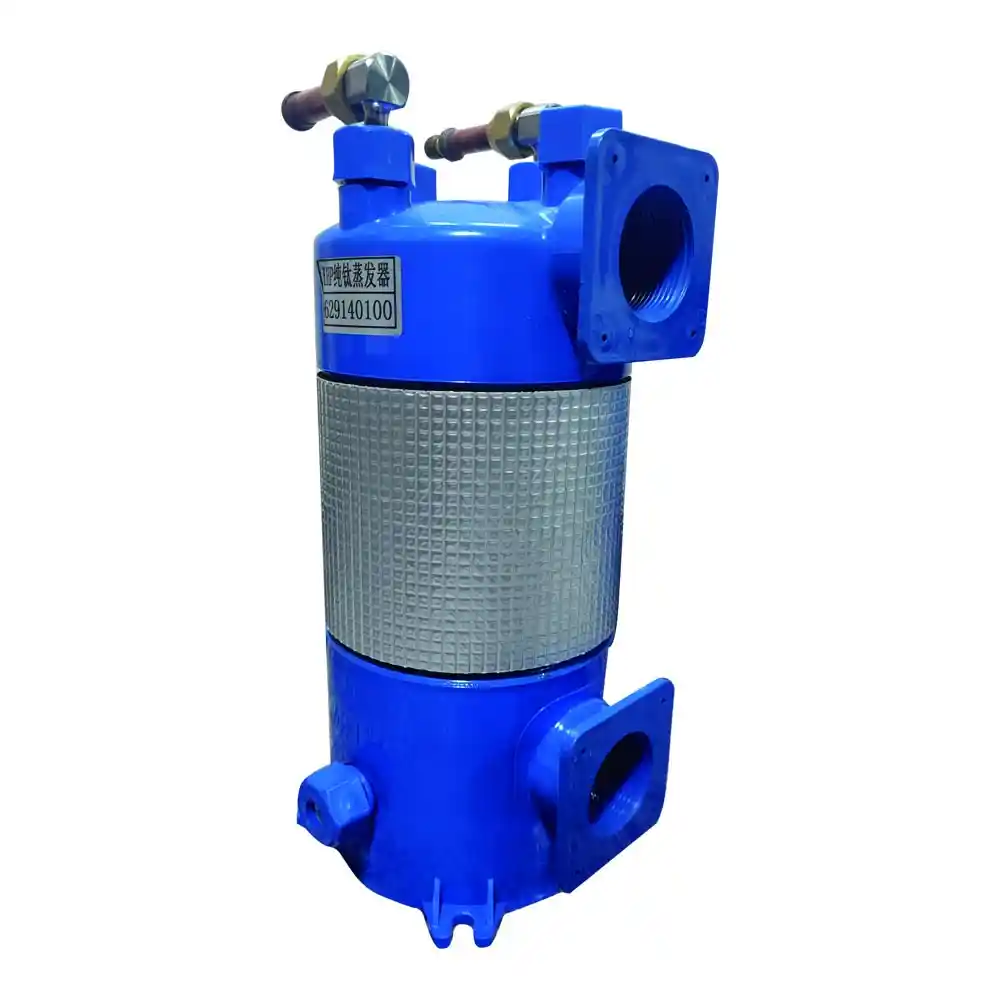Introduction
The production of titanium coil heat exchangers involves the use of high-quality raw materials to ensure durability, efficiency, and corrosion resistance. This article focuses on the raw material preparation process for titanium coil production, highlighting the importance of titanium and PVC materials and their specific properties.
1. Titanium Coil
Titanium coils form the core component of titanium coil heat exchangers. These coils are made from titanium tubes that possess excellent corrosion resistance and heat transfer properties. The raw material preparation process for titanium coil production includes the following steps:
1.1 Titanium Material Selection
Selecting the right grade of titanium is crucial to ensure the desired performance of the heat exchanger. Factors such as corrosion resistance, thermal conductivity, and cost-effectiveness are considered when choosing the titanium material.
1.2 Titanium Tube Manufacturing
The selected titanium material is processed through tube manufacturing techniques to produce titanium tubes. These tubes are typically seamless and can be customized to specific dimensions and thicknesses as per the heat exchanger design requirements.
1.3 Coil Formation
The titanium tubes are then formed into coils, either by bending or winding them around a mandrel. This process gives the coils their characteristic shape and ensures efficient heat transfer within the heat exchanger.
2. PVC Shell
The PVC shell serves as the outer protective layer for the titanium coil heat exchanger. It provides insulation, mechanical protection, and resistance against external environmental factors. The raw material preparation process for the PVC shell involves the following steps:
2.1 PVC Material Selection
Choosing the appropriate PVC material is crucial to ensure the shell’s durability and compatibility with the heat exchanger’s operating conditions. PVC materials with high impact strength and resistance to UV radiation and chemical exposure are preferred.
2.2 PVC Sheet Production
The selected PVC material is processed to produce PVC sheets of the desired thickness. This is typically done through a combination of extrusion and calendaring processes, where the PVC material is melted, shaped, and cooled to form flat sheets.
2.3 Shell Fabrication
The PVC sheets are then cut and shaped into the required shell dimensions. This may involve techniques such as heat bending, welding, or adhesion to create the final PVC shell with the necessary structural integrity and aesthetic appearance.
Comparison of Titanium and PVC Materials
To provide a clearer understanding of the properties and characteristics of titanium and PVC materials used in the production of titanium coil heat exchangers, the following table presents a comparison:
| Property | Titanio | PVC |
|---|---|---|
| Corrosion Resistance | Excellent resistance to corrosion, especially in aggressive environments | Good resistance to a wide range of chemicals and moisture |
| Thermal Conductivity | High thermal conductivity, allowing efficient heat transfer | Low thermal conductivity, providing insulation properties |
| Mechanical Strength | High strength-to-weight ratio, providing structural integrity | Moderate strength, suitable for protecting the internal components |
| Temperature Range | Can withstand high operating temperatures | Limited temperature range, typically suitable for moderate temperatures |
| Cost | Relatively expensive material | Cost-effective material |
Note: The above table provides a general comparison and specific material properties may vary depending on the grade and formulation.
In conclusion, the raw material preparation process for titanium coil production involves selecting high-quality titanium for the inner coil and PVC for the outer shell. The unique properties of titanium and PVC contribute to the overall performance and durability of titanium coil heat exchangers. Understanding the raw material characteristics is essential for designing and manufacturing efficient and reliable heat exchangers.


